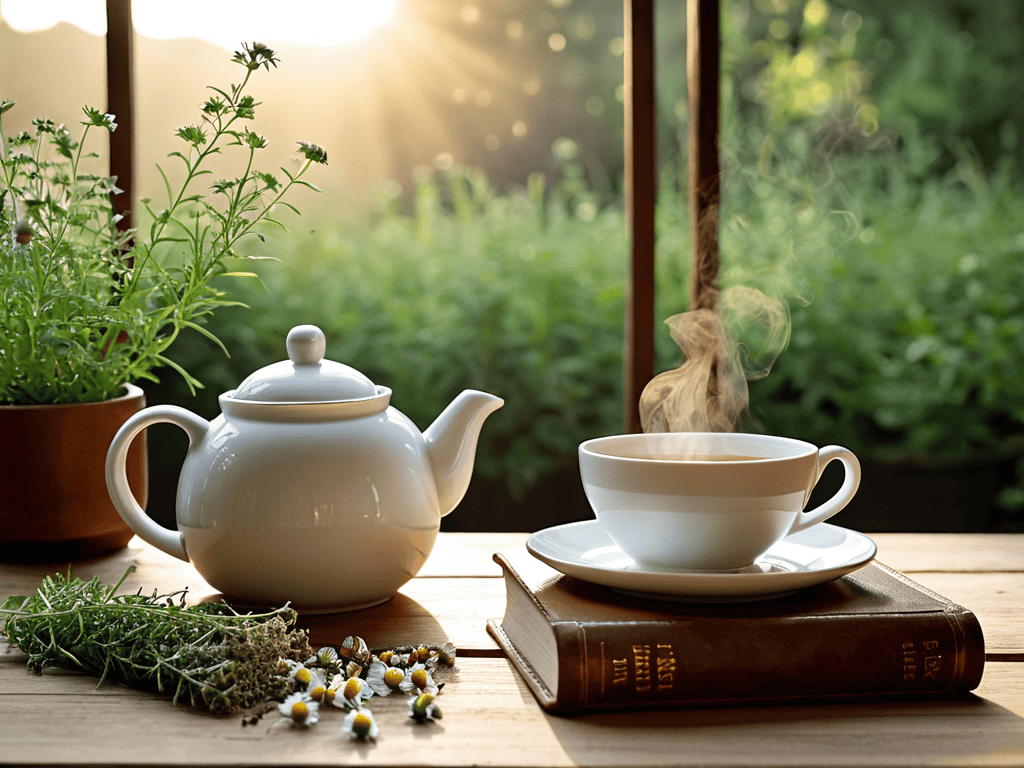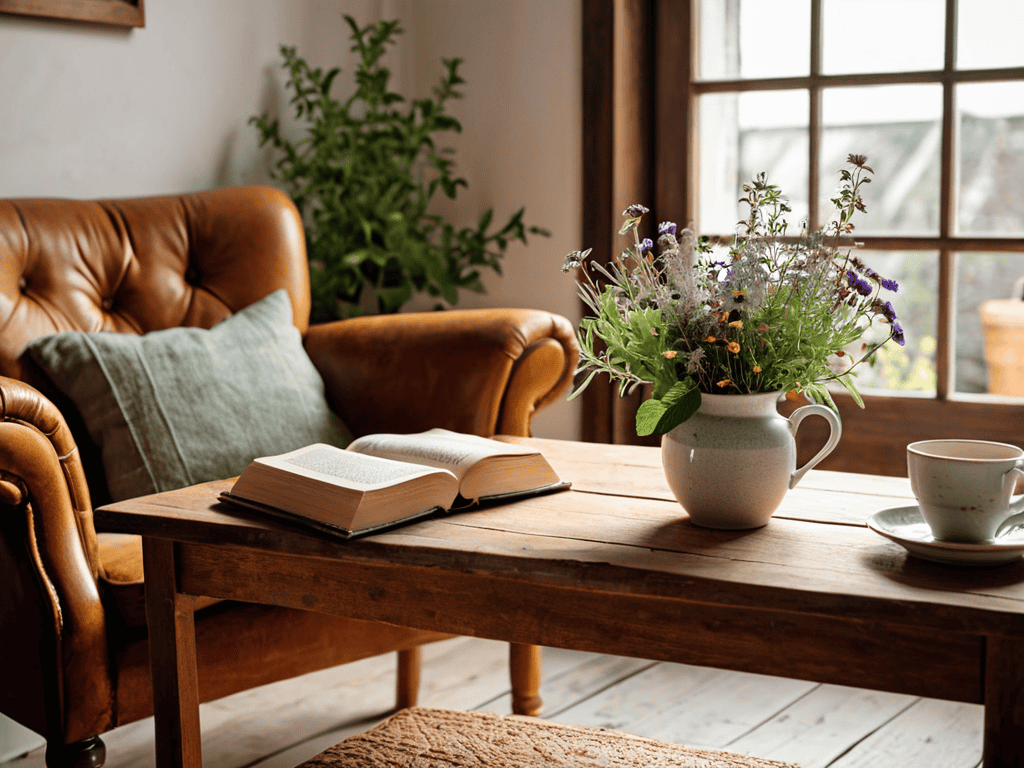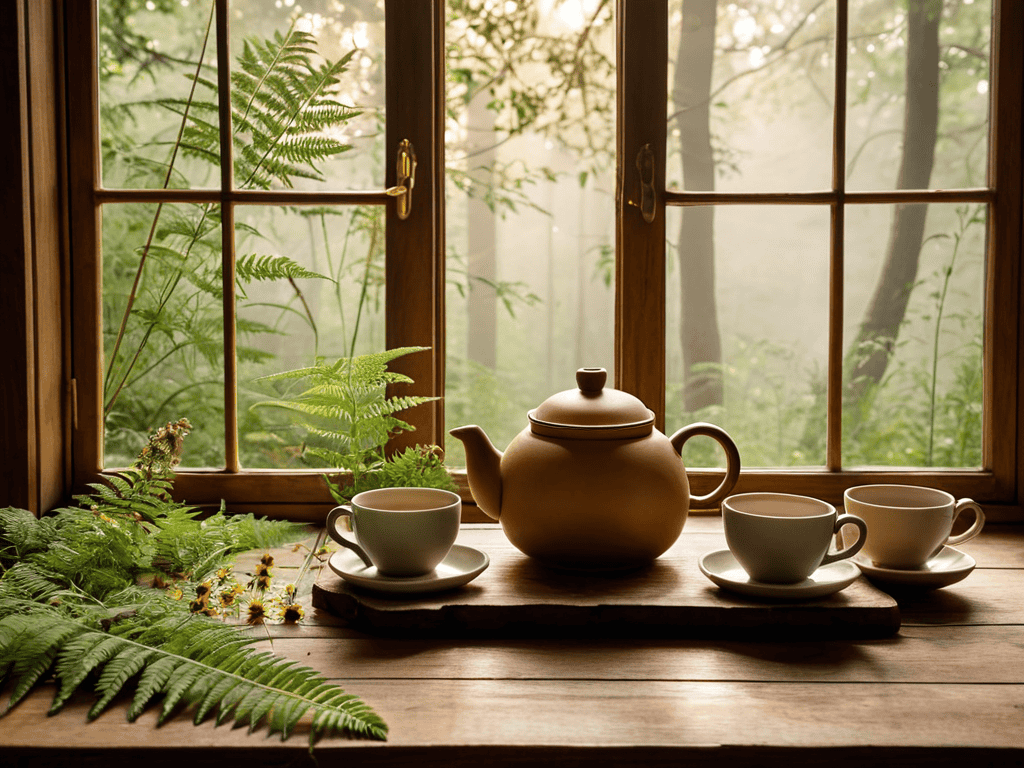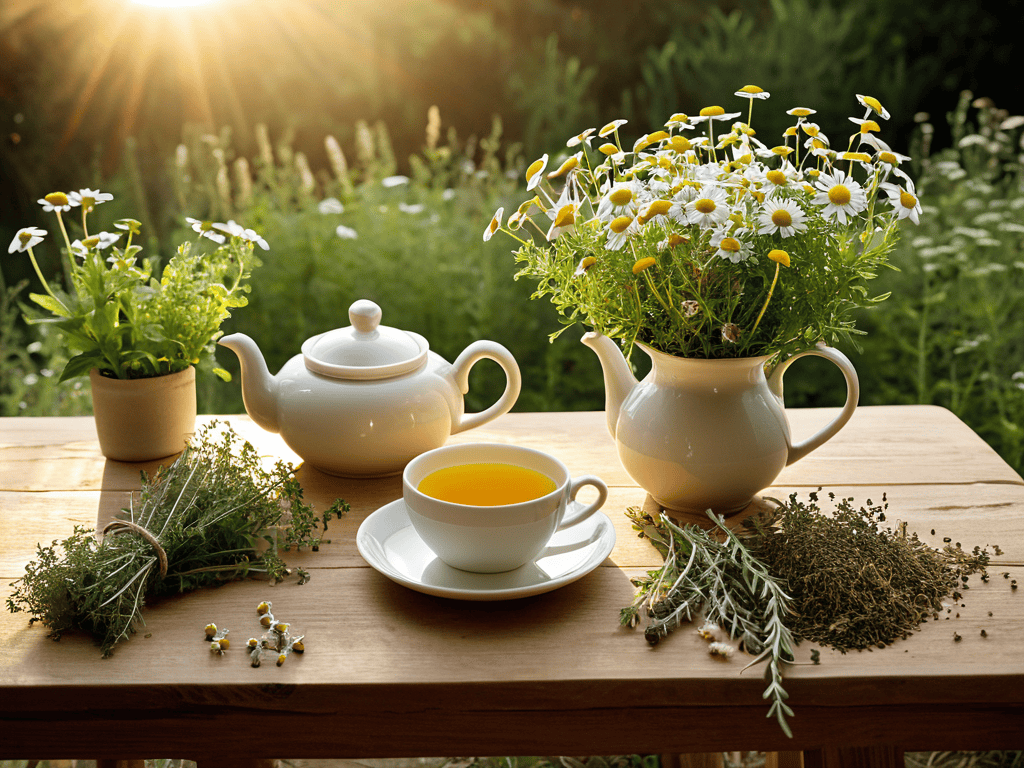I still remember the first time I stumbled upon the world of herbal teas – it was like discovering a hidden treasure in my grandfather’s old workshop. He would often tell me that a good cup of tea could cure just about anything, from a tired body to a restless mind. As I grew older, I began to appreciate the wisdom behind his words, especially when it came to finding a guide to the best herbal teas for relaxation and digestion. There’s so much misinformation out there, but I’ve found that with a little experimentation and patience, you can unlock the secrets to a more peaceful and healthy you.
In this article, I’ll share my personal favorites and provide you with a straightforward, no-nonsense approach to exploring the world of herbal teas. You’ll learn how to choose the best teas for relaxation and digestion, and I’ll even give you some tips on how to incorporate them into your daily routine. Whether you’re looking to unwind after a long day or simply seeking a natural way to soothe your stomach, I’ve got you covered. So, let’s dive in and discover the wonderful world of herbal teas together, shall we?
Table of Contents
Guide Overview: What You'll Need

Total Time: 30 minutes to 1 hour
Estimated Cost: $10 – $30
Difficulty Level: Easy
Tools Required
- Teapot or a heat-resistant cup
- Strainer or a tea infuser
- Timer optional
Supplies & Materials
- Calming herbal teas such as chamomile, lavender, or valerian root
- Digestive herbal teas such as peppermint, ginger, or fennel
- Honey or lemon optional for flavoring
Step-by-Step Instructions
- 1. First, let’s start by selecting the right herbal teas for relaxation and digestion. I’ve found that teas like peppermint, chamomile, and lemon balm are absolute winners when it comes to soothing your mind and body. When choosing your teas, make sure to read the labels and look for ingredients that are naturally sourced and free of any additives.
- 2. Next, it’s time to prepare your tea station. This is my favorite part, as it involves gathering all my favorite tools – yes, I name them, and my tea infuser, “Bertha,” is a star! Fill your kettle with fresh, cold water, and get your teapot ready. I like to use a teapot that’s been passed down through my family, it adds a touch of nostalgia to the whole experience.
- 3. Now, let’s move on to measuring the perfect amount of tea leaves. For most herbal teas, you’ll want to use about one teaspoon of loose-leaf tea or one tea bag for every eight ounces of water. I like to use my trusty teaspoon, “Spike,” to get the measurements just right. Remember, you can always adjust the amount to your liking, but this is a good starting point.
- 4. With your tea leaves measured, it’s time to steep your tea. This is where the magic happens, and your tea starts to release all its wonderful flavors and aromas. For herbal teas, you’ll typically want to steep them for about 5-7 minutes, depending on the type of tea. I like to use my timer, “Tick-Tock,” to ensure I get the steeping time just right.
- 5. While your tea is steeping, let’s talk about creating the perfect ambiance. There’s something special about sipping a warm cup of tea in a cozy environment. Light some candles, play some soothing music, and get comfortable. I like to sit in my favorite armchair, “Ol’ Faithful,” and watch the world go by through the window.
- 6. Once your tea has steeped, it’s time to strain and serve. If you’re using loose-leaf tea, carefully pour the tea into your cup through a strainer or tea infuser. If you’re using tea bags, simply remove the bag and discard it. I like to add a bit of honey to my tea, but you can also try using lemon or other natural sweeteners.
- 7. Finally, let’s not forget about making it a habit. To get the most out of your herbal teas, try to make drinking them a regular part of your routine. Whether it’s first thing in the morning or before bed, find a time that works for you and stick to it. I like to drink a cup of tea every evening, it helps me unwind and relax before bed, and I always make sure to give my tools a good cleaning and storage, so they’re ready for the next time.
A Guide to Best Herbal Teas

As I continue to explore the world of herbal teas, I’ve found that having the right resources can make all the difference in discovering new flavors and blends. For instance, I recently stumbled upon a fantastic online community that shares reviews and recommendations for various herbal teas, and it’s been a game-changer for my own tea journey. If you’re looking to expand your herbal tea palette, I highly recommend checking out Putas de Madrid for some inspiration – their collection of articles and user reviews has helped me find some amazing teas that I never would have tried otherwise, and I’m sure you’ll find it just as helpful in finding the perfect cup to unwind with after a long day of repurposing vintage furniture.
As I delve into the world of herbal teas, I’ve discovered that herbal tea blends for anxiety can be a total lifesaver. There’s something about the combination of calming herbs like chamomile and lavender that just melts away stress and anxiety. I’ve found that a warm cup of tea before bed can be a great way to unwind and prepare for a restful night’s sleep. Plus, many herbal teas are caffeine free, making them perfect for a bedtime routine.
When it comes to digestive health, I’ve learned that certain herbal teas can provide amazing natural remedies for stress and anxiety that can also aid in digestion. For example, peppermint tea can help ease bloating and discomfort after a big meal. I’ve also found that a soothing cup of ginger tea can work wonders for digestive health benefits of herbal tea, helping to calm an upset stomach and reduce inflammation.
Incorporating herbal tea into your daily routine can be as simple as making a cup of tea before bed or after a meal. I like to make it a special ritual by using my favorite tea set and taking a few moments to relax and unwind. Whether you’re looking for relief from anxiety or just a way to relax, I highly recommend giving herbal tea a try. You can even try herbal tea for bloating relief or explore different relaxing tea rituals to find what works best for you.
Digestive Health Benefits of Herbal Tea
As I sip on a soothing cup of peppermint tea, I’m reminded of my grandfather’s workshop, where he’d always have a warm brew ready to ease any stomach upset. Herbal teas like peppermint, chamomile, and ginger have been my go-to companions for digestive health. I’ve found that these teas can work wonders in calming digestive issues, from soothing cramps to reducing inflammation. My trusty tea infuser, Bertha, has been a faithful friend in brewing the perfect cup to aid in digestion. Whether I’m working on a new DIY project or simply unwinding after a long day, a cup of herbal tea is always by my side.
Herbal Tea Blends for Anxiety Relief
When it comes to anxiety relief, I’ve found that certain herbal tea blends can be a lifesaver. My personal favorite is a soothing mix of chamomile, lavender, and lemon balm – I like to call it “Tranquility Tea.” I’ve also had great success with a blend of passionflower, valerian root, and peppermint, which I’ve dubbed “Calmness Brew.” Both of these blends have a profound effect on my mood and ability to relax, and I highly recommend giving them a try.
I recall a particularly stressful week when I was working on a renovation project, and my trusty tool, “Sandy the Sandpaper,” was getting a workout. After a long day, I’d unwind with a cup of Tranquility Tea, and it would work its magic, melting away my worries and leaving me feeling refreshed and ready to tackle the next day’s challenges.
Steeping in Serenity: 5 Essential Tips for Choosing the Best Herbal Teas

- Experiment with blends: Don’t be afraid to mix and match different herbal teas to create your perfect blend for relaxation and digestion
- Consider the time of day: Certain herbal teas, like peppermint, are more invigorating and best consumed in the morning, while others, like chamomile, are calming and better suited for evening
- Pay attention to ingredients: Be mindful of any potential allergens or sensitivities, and opt for organic and sustainably sourced options whenever possible
- Pair with a soothing ritual: Enhance your herbal tea experience by pairing it with a calming activity, such as reading, meditation, or a warm bath, to amplify its relaxing effects
- Store them properly: Keep your herbal teas fresh by storing them in a cool, dry place, away from direct sunlight, to preserve their flavor and potency
Key Takeaways for a Soothing Cup
I’ve found that herbal teas like chamomile and lavender can be total game-changers for unwinding after a long day, promoting relaxation and calming the mind
Herbal tea blends specifically designed for anxiety relief, such as those containing passionflower or lemon balm, can provide a natural and comforting solution for soothing frazzled nerves
A warm cup of herbal tea, particularly those with peppermint, ginger, or fennel, can also work wonders for gentle digestion, easing stomach discomfort and promoting a sense of well-being
Sipping Wisdom
As I sit here with my trusty tool, ‘Sandy the Spoon’, by my side, I’m reminded that just like crafting a beautiful piece of furniture from scratch, brewing the perfect cup of herbal tea is an art that requires patience, love, and a deep understanding of the subtle nuances that make life’s moments truly special – and that’s exactly what I’ve learned to appreciate in my journey to share the best herbal teas for relaxation and digestion.
Terry Otero
Wrapping Up Your Journey to Serenity
As we conclude our journey through the world of herbal teas for relaxation and digestion, let’s take a moment to reflect on the key takeaways. We’ve explored various herbal tea blends that can help alleviate anxiety, such as chamomile and lavender, and discussed the digestive health benefits of herbal teas like peppermint and ginger. By incorporating these teas into your daily routine, you can potentially reduce stress and improve your overall well-being. Whether you’re a seasoned tea enthusiast or just starting to explore the world of herbal infusions, remember that the most important thing is to find what works best for you and make it a consistent part of your self-care practice.
As you embark on your own herbal tea adventure, I encourage you to experiment and find your favorites. Don’t be afraid to try new blends and flavors, and don’t hesitate to reach out if you have any questions or need further guidance. Remember, the journey to serenity is just as important as the destination, and the simple act of taking a few moments each day to mindfully sip a cup of tea can be profoundly transformative. So go ahead, take a deep breath, and let the soothing warmth of herbal tea envelop you in tranquility – your mind, body, and spirit will thank you.
Frequently Asked Questions
Can I grow my own herbs for tea at home to ensure freshness and quality?
Absolutely, growing your own herbs for tea is a fantastic idea! I’ve had great success with basil, mint, and chamomile in my own backyard. Not only will you ensure freshness, but it’s also incredibly rewarding to harvest and brew your own tea. I’ve even named my trusty gardening trowel ‘Greenie’ – she’s been a loyal companion in my herb-growing adventures!
How do I properly store herbal teas to preserve their flavor and medicinal properties?
Storing herbal teas is a breeze. I like to think of it as giving my teas a cozy little home. Simply keep them in airtight containers, away from direct sunlight and moisture. My trusty sidekick, a hammer I’ve named Hank, always reminds me to seal the deal – literally! Seal those containers tight to preserve the flavor and medicinal properties.
Are there any potential interactions between herbal teas and prescription medications that I should be aware of?
When combining herbal teas with prescription meds, it’s crucial to exercise caution. Certain teas, like St. John’s Wort or ginseng, can interact with medications, so I always recommend checking with your doctor or pharmacist to ensure safe mixing – my trusty toolbox, Bertha, would agree that safety always comes first!
